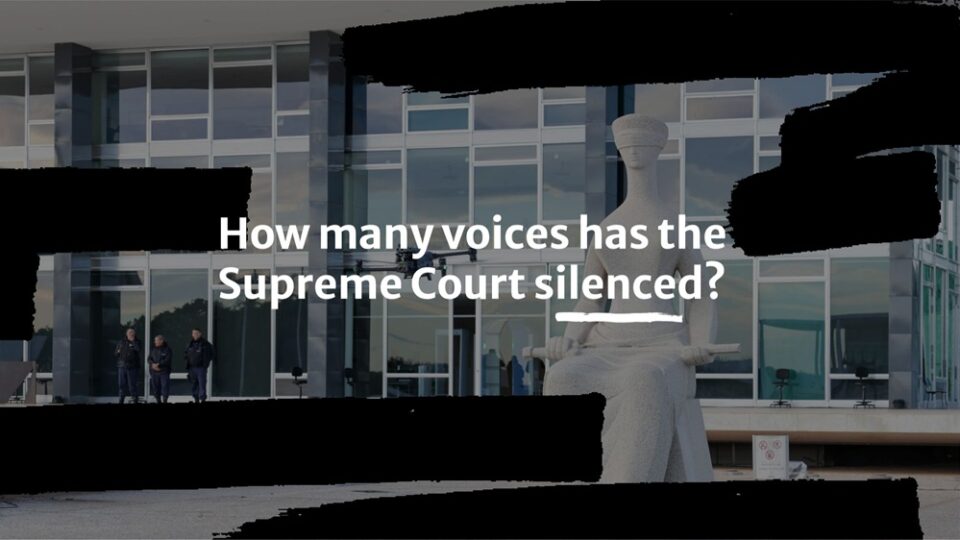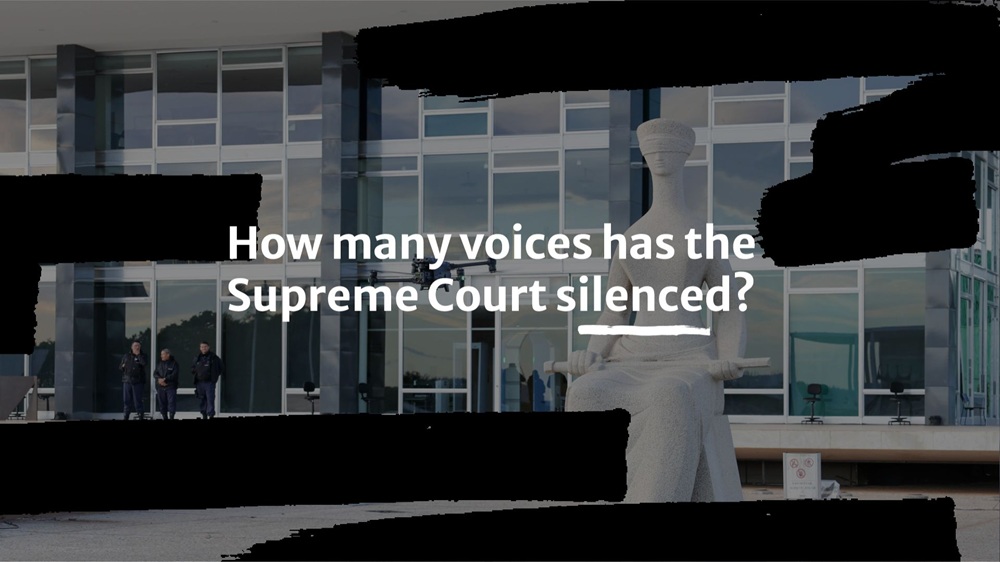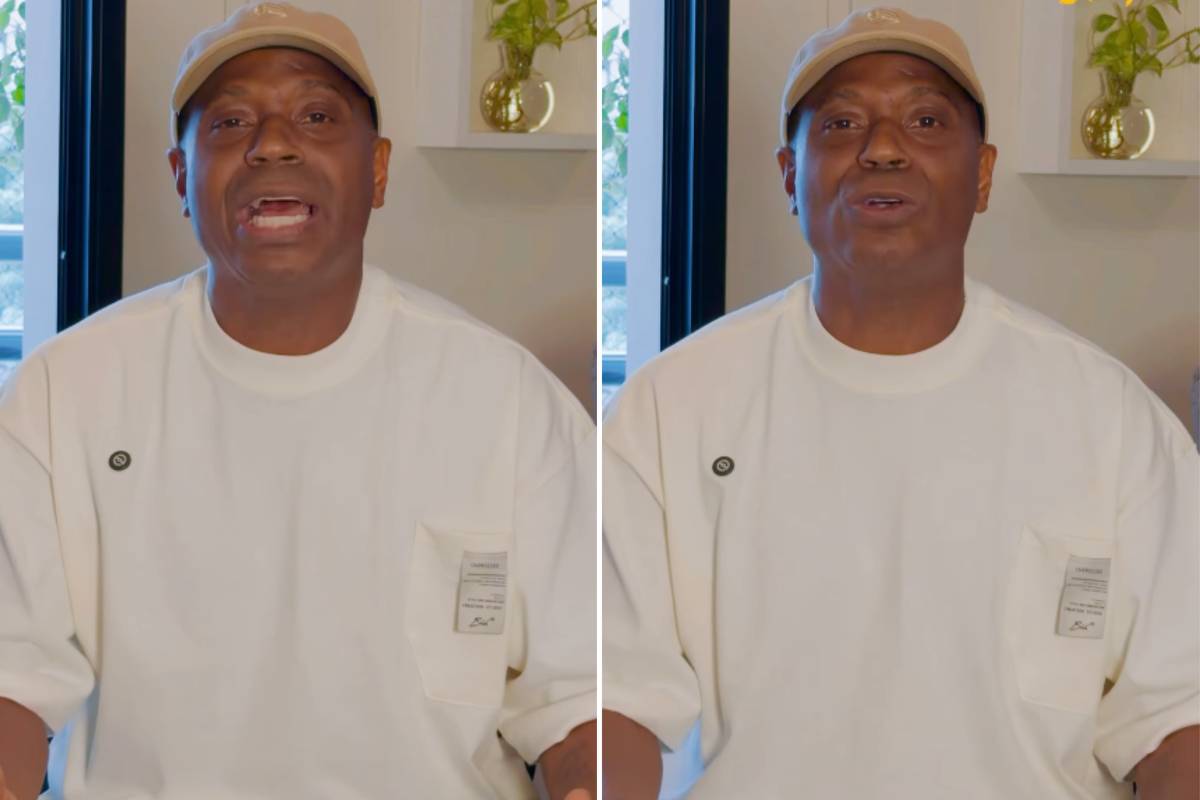
(This is an English version of the text originally published by Gazeta do Povo on Sunday, September 21, 2025)
Since 2019, Brazil’s Supreme Federal Court (STF) has consolidated a repertoire of terms that have dominated the country’s public debate: “fake news,” “digital militias,” “informational disorder,” “fraudulent news,” “anti-democratic acts,” “threats to democracy,” “knowingly false facts,” among others. These are elastic expressions, used in rulings and official statements to address behaviors that lack a precise legal definition. The result has been a semantic universe that expands the State’s discretionary power over citizens’ speech.
In June, when the Court issued new regulations for social media platforms, another such expression was introduced: “anti-democratic conduct.” From now on, platforms will be required to proactively remove such content — without the need for a court order.
An article published in April in the academic journal Direito e Linguagem (“Law and Language”) defines these terms as “semantic wildcards, capable of justifying any suspension of constitutional guarantees, as long as they are framed as acts of self-preservation of democracy.”
“The practice of appealing to emotion by saying ‘we were heading toward the abyss,’ that ‘the inquiry was decisive in saving democracy in Brazil,’ calling exceptions ‘constitutional protections,’ treating unconstitutional investigations as ‘preventive actions in defense of the democratic regime,’ claiming that ‘extraordinary powers were crucial to withstand the anti-democratic movement,’ and of describing political persecution as ‘technical-institutional measures’ reveals the centrality of euphemism as a symbolic operation. The exception is, above all, semantic,” write the authors Rodrigo Chemim, PhD in State Law and professor of Criminal Procedure at Universidade Positivo, and Fábio André Guaragni, professor at Unicuritiba and PhD in Social Relations Law at UFPR.
The article — titled Between Defensive Democracy and the Philosophy of Language: Euphemistic Uses of Legal Discourse in Exceptional Criminal Proceedings — argues that there is a “philosophical perversion that seeks to legitimize what has been done” when “the interpreter [the justices, in this case] ceases to be a mediator of constitutional language and becomes its author.”
According to the authors, the root of this problem lies in the philosophical paradigm of “consciousness,” which places “the interpreter’s inner experience at the center of legal meaning”—that is, words take on whatever meaning the judge deems most appropriate.
“The problem with the philosophy of consciousness, which is Cartesian, is believing that the subject can become master of the meanings of the world,” explains Chemim in an interview with Gazeta do Povo. “It is the worst possible foundation on which to build law— yet it has guided Brazilian jurisprudence for a long time.”
Chemim traces the origins of this subjectivist view of legal interpretation. According to him, Brazil’s dominant model today stems from the so-called “free law school,” which legitimizes rulings based on judges’ personal visions of justice. This approach was reinforced in the 1980s and 1990s by the spread of “alternative law,” a Marxist-inspired theory that allows judges to disregard the law whenever it conflicts with their ideal of the world.
This practice — adopted by STF justices trained in that intellectual climate— reveals, according to Chemim, adherence to the philosophy of consciousness, centered on the interpreter’s subjective will. He argues this must be replaced by a philosophy of language that imposes objective limits on the meaning of legal terms, in order to prevent arbitrary decisions.
“Today’s justices are products of that era [late 20th century]. Some were already teaching back then; others were students. They graduated from law school or built their academic careers believing in ideas like: the good jurist is the one who, whenever the law clashes with his ideal of justice, delivers justice. The problem is that you end up with eleven Supreme Court justices, each one dispensing justice according to his own worldview. But law cannot function like that.”
Even in the very creation of the “fake news inquiry” in 2019, then-Chief Justice Dias Toffoli introduced vague expressions that opened the door to broad interpretations. The official justification for the Court’s decision to launch the inquiry on its own initiative was “the existence of fraudulent news, commonly known as fake news, false accusations, threats, and offenses imbued with animus calumniandi, diffamandi, and injuriandi, which affect the honor and security of the Supreme Federal Court.”
Chemim does not rule out the possibility that crimes against the honor of justices may in fact have occurred. But he stresses that, if so, the proper legal response would not involve the Supreme Court, but rather a lower-court proceeding dealing with defamation or slander.
“The solution existed — it just wasn’t in the Supreme Court. It was in the trial court. But the justices went to great lengths to give that inquiry an air of legitimacy, with frightening rhetoric,” he says.
For him, this lack of objectivity undermines trust, which he calls “the glue of a democratic society.”
“The justices themselves should have been mindful that, when they overstep hermeneutical boundaries long consolidated in rules and constitutional guarantees — as they have systematically done since 2019 — they fray the democratic process. They contribute to greater institutional distrust.”
Legal Doctrine Language Also Manipulated to Justify Arbitrary Acts
The strategic use of language is not limited to the creation of new expressions to label conduct. Core concepts from legal doctrine itself have also been distorted to legitimize extraordinary measures and shield the decisions of Supreme Court justices.
One example, according to Chemim, is the appropriation of the concept of “defensive democracy,” which has been used to justify censorship and political persecution.
The term — borrowed from German legal doctrine of the 1930s — has appeared in rulings by Justice Alexandre de Moraes, along with the concept of a “state of exception in legitimate defense.” “They keep coming up with catchphrases. ‘State of exception in legitimate defense,’ ‘defensive democracy.’ It’s laughable… yet there are jurists who write this with any pretense of seriousness,” Chemim remarks ironically.
In Chemim’s view, such expressions serve to disguise what he identifies as a form of “enemy criminal law” — a theory developed by German scholar Günther Jakobs, which holds that certain individuals, by being labeled enemies of the State, do not deserve the same legal protections as others.
According to Chemim, this was evident in Justice Alexandre de Moraes’s own words during the STF’s plenary session at the start of the second half of the year: “Courage has never been lacking, and will never be lacking, among the members of this Court to repudiate the aggressions of the enemies of national sovereignty, enemies of democracy, and enemies of the rule of law,” Moraes declared.
“A Supreme Court justice cannot conduct proceedings claiming that he is acting against enemies,” Chemim says.
The proliferation of euphemisms, Chemim argues, does not alter the true nature of the acts being carried out. Quoting Shakespeare’s Romeo and Juliet, he notes: “A rose by any other name would smell as sweet. I can change the name and call it ‘defensive democracy’ or ‘state of exception in legitimate defense,’ but what is in fact enemy criminal law will remain enemy criminal law.”
Fonte. Gazeta do Povo












